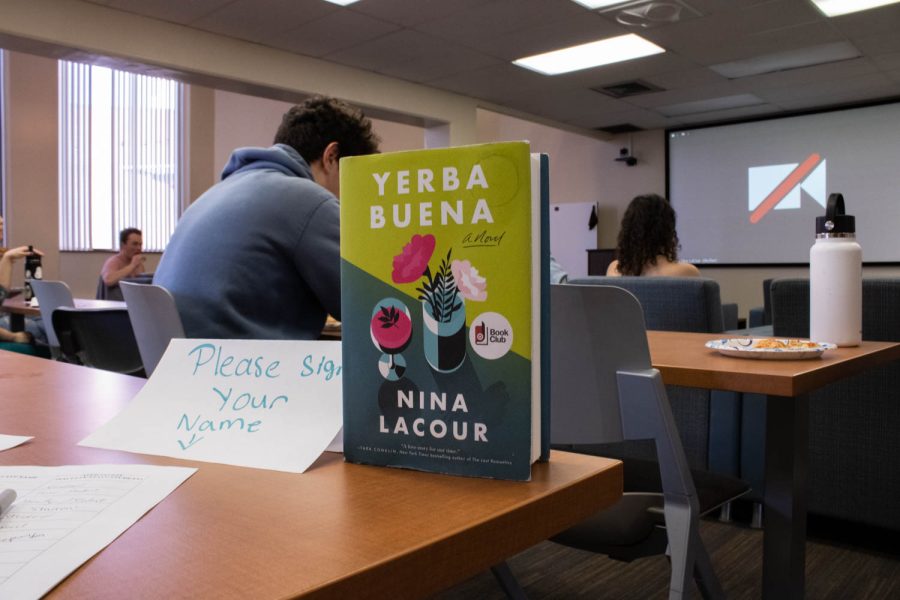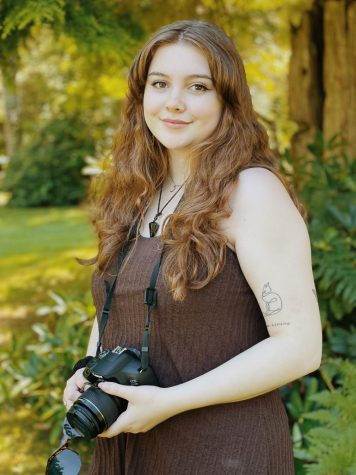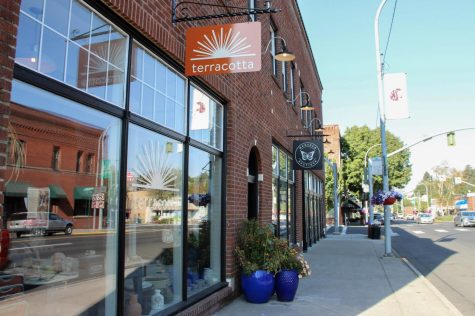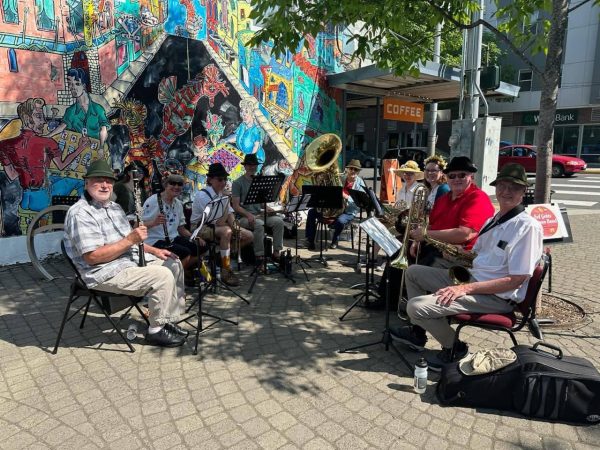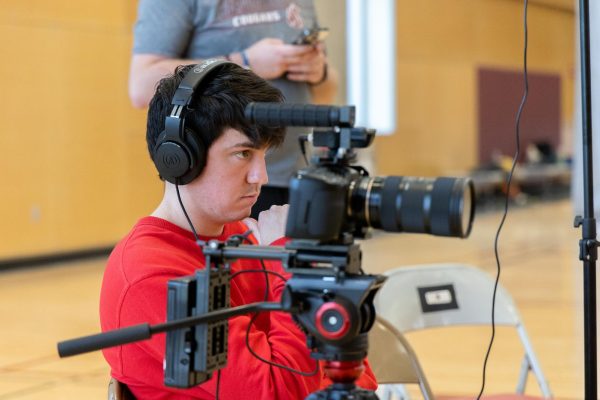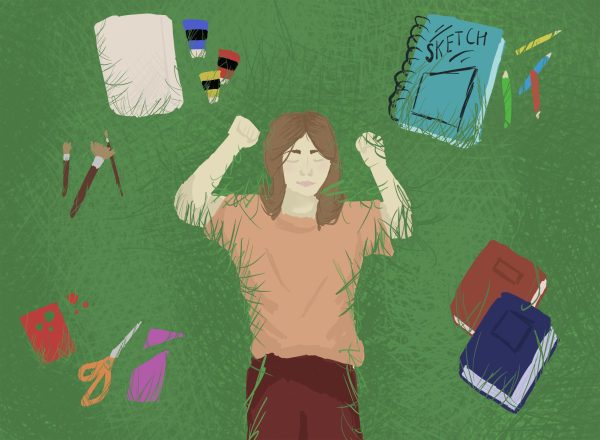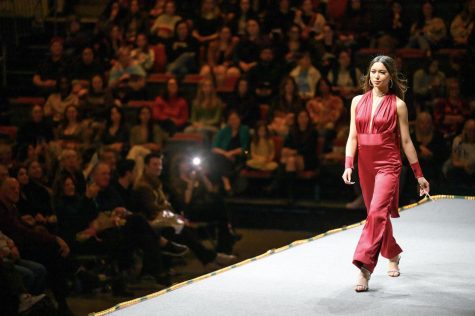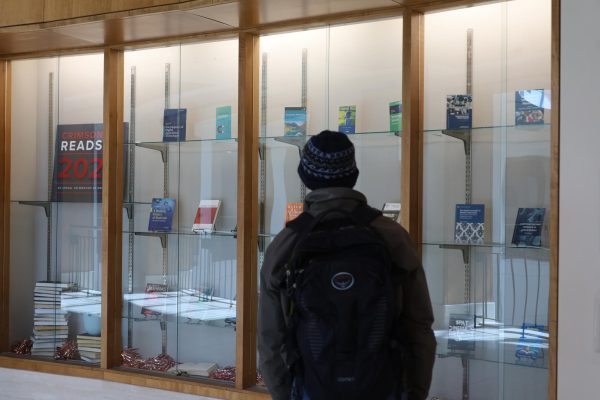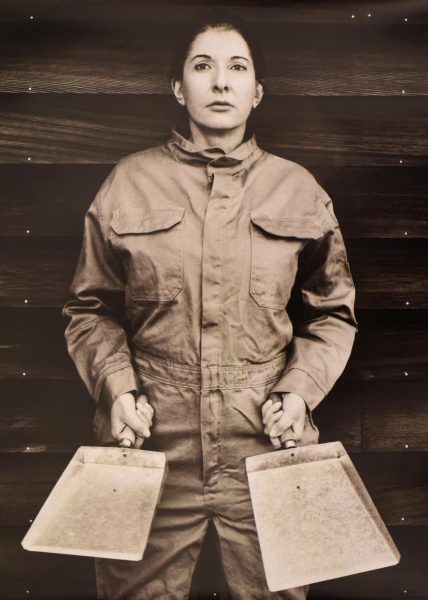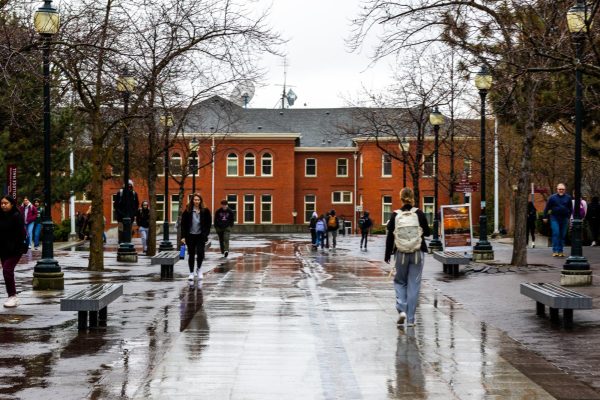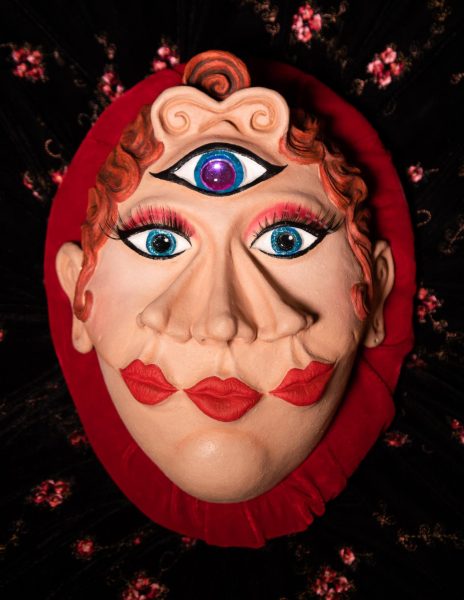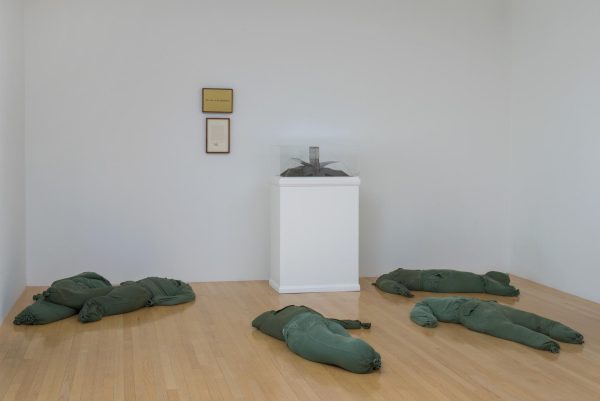Banned book author Nina LaCour visits WSU
LandEscapes, WSU’s literary journal, sponsored the April 13 event
LaCour’s book, “Yerba Buena,” in the Bundy Reading Room, April 13.
April 19, 2023
Author Nina LaCour is not afraid to honestly address emotionally heavy issues in her novels, despite facing censorship due to LGBTQ+ themes and her depictions of grief.
LaCour, author of queer romance book “Yerba Buena,” virtually visited the English Club at 4:30 p.m. April 13 in the Bundy Reading Room. LaCour said her book “Hold Still” was banned at a Kansas City high school, which shocked her. She said her books have also been banned from libraries across the country.
English Club members attended the event in person, while LaCour visited virtually by Zoom via a projector where she could see and hear the students. The whole hour of LaCour’s visit consisted of a question-and-answer session.
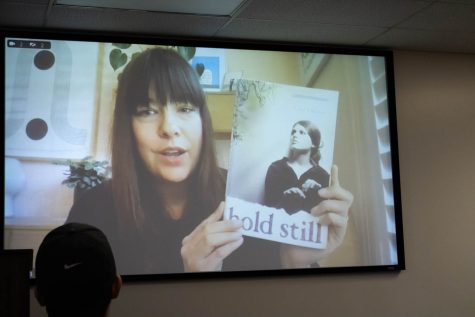
LaCour on screen with her banned book, “Hold Still,” in the Bundy Reading Room, April 13.
“The censorship that’s happening right now is just not anything that we have seen in modern American history. This is an incredible coordinated attack on books in schools and libraries. And it’s just a terrible thing,” LaCour said. “I think one of the things that we talk about the most, especially in writing for young people … is how everybody deserves to see themselves and their experiences reflected in literature.”
To keep books out because gatekeepers want only one type of viewpoint represented is a huge problem, she said, but she doesn’t know the larger solution. Being involved on the local level is important. Following who is running for school board, voting and showing up at school board meetings are ways to help your community, she said.
LaCour said she became an author because she loves being in her head, the quiet of writing for hours, imagining people and situations, fictionalizing real events and making sense of trauma. She writes non-linearly and in a very fragmented way, taking a long time to get to know her characters.
“I revise a lot as I go and I always find like the first draft is really only a starting point. And then I go back through and I deepen so much,” she said. “The characters really, sometimes I don’t know why they’re doing the things they’re doing until like three or four drafts in.”
“Yerba Buena” is a love story between two women who struggle with a miscommunication, LaCour said, but she didn’t know the motive behind why the characters were miscommunicating until she was writing the final draft of the book. She is most interested in the deep psychology of her characters.
Levi Policarpio, senior English major and English Club vice president, said he read “Yerba Buena” and “We Are Okay” and that both of the books were “very brilliant.”
“[‘We Are Okay’] really does showcase what it means to be a queer woman navigating through a life that always throws challenges their ways,” he said.
Hearing LaCour talk, Policarpio said that he could tell she has been through a lot of things in her life. He feels inspired to do something similar to LaCour because of her discussions of grief, sacrifice and being part of a community.
Laura Kuhlman, English Club faculty advisor and English professor, said “Yerba Buena” was so good she could not put it down, and that the event was awesome.
“I thought that the questions were really great and I appreciated her sharing her thoughts,” she said. “Especially, I thought her take on what it means to be an author to have a book of your own banned and go through that experience was really interesting, especially considering the political climate today.”
LaCour said the emotions in her books are complicated.
While grief becomes more bearable over time, if you stop grieving, you lose the love over what you are grieving, she said. Her books reflect this ideal; she writes about how love is a huge mix of love, grief, loss and beauty.
“I feel like grief and love are so intertwined. I don’t think that you really have one without the other and I think that it’s so much in life is like that,” she said. “You can be suffering and things can be really hard. But you also have all of this natural beauty. All of these beautiful things that people can make like art and human connection and the way that light is hitting something that you love, like a person’s face. There’s so much beauty.”

